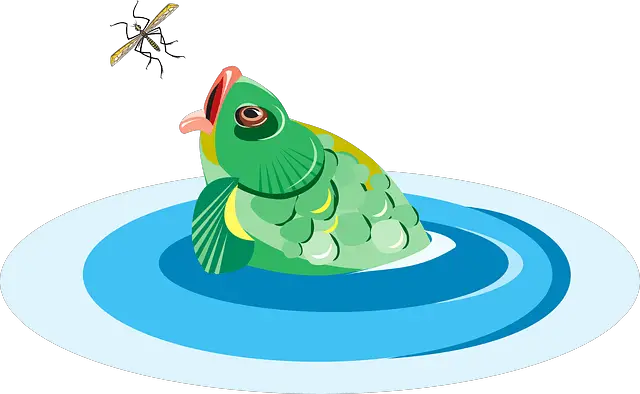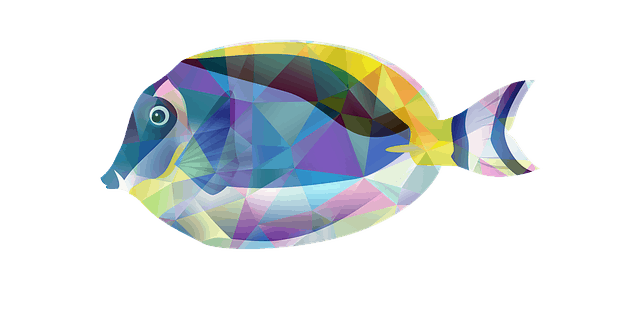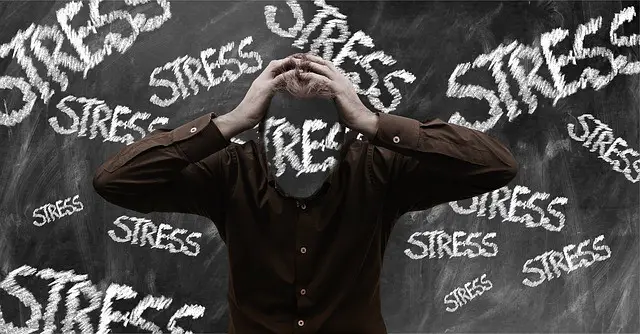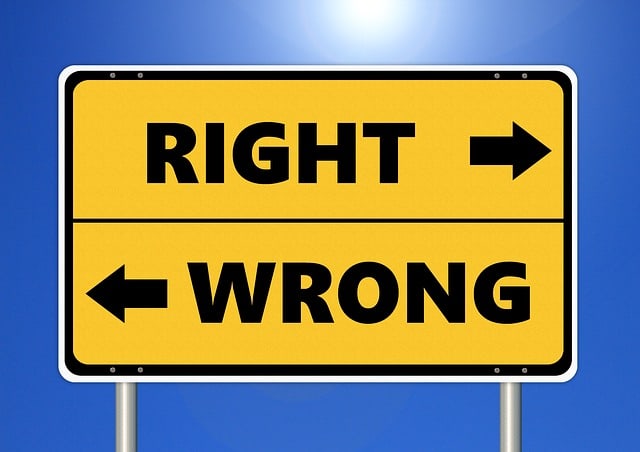The amount of food you feed your fish affects the health of the fish and the safety of the tank. It would be nice if you didn’t have to think about what happens if you feed your fish too much or too little, but you do. The saying “less is more” is imperative when it comes to feeding aquarium fish.
Feeding tropical fish every second day is okay, provided they’re not frye. Baby fish, however, need to be fed twice a day. Adult fish can be fed every other day and in doing so, you’ll help ensure that tank environment remains safe for all inhabitants.
There are a few different reasons for feeding your fish every other day, which we’ll go over in this article. I’ll also try to cover any other information you should know pertaining to feeding your fish this often. Let’s begin!
Reasons You Want to Feed Your Tropical Fish Every Other Day?
There are a few reasons to consider feeding every other day. Let’s go over them now.
- One of the reasons I’d start feeding every other day is when there’s an algae outbreak. Small amounts of algae are okay and usually don’t grow of control when regular water changes are performed. Sometimes however, algae blooms take over in which case, reducing the amount of food can help significantly.
Fish don’t get 100% of the food they are fed, which means decaying food sits in your substrate. The result of this is increased nitrate levels and with that, your tank will more easily grow unwanted algae.
- Larger, less active fish don’t food every day. When they do get fed, they should be given larger portions than smaller fish, such as guppies. With more food being provided, the less often you need to feed them. Smaller fish that are much more active don’t eat as much per feeding and therefore burn off the food they eat faster.
- If your tank’s water parameters are ‘out of whack’, feeding every other day will help to rectify the problem. It’s not a quick solution to lower ammonia, nitrite, and nitrate levels, but it’s a piece of the puzzle in preventing the issue and keeping a healthy tank for the long term.
- If you find an overabundance of snails in your tank, you might consider starting to feed every other day. You’ll likely find little critters in your substrate such as scuds which appear when there’s decaying food that doesn’t get cleaned out. Cutting back on feeding will help the battle against snails taking over your tank.
There could be other reasons for feeding your tropical fish every other day, but for the most part, it’ll always be associated with keeping your tank healthy and running properly.
How Do You Know if You’re Not Feeding Your Fish Enough?
If you start feeding your fish every other day, you might worry you’re not feeding them enough. It’s totally understandable to wonder about this. By closely observing your fish daily, you can most likely figure out if you’re feeding them enough.
Underfed fish will be more active when you’re near the tank, as they think they’re getting fed. If you notice that when you pass by the tank they act like they’re excited to see you, then that’s a sign of hungry fish.
Another sign of hungry fish is when they start acting aggressive towards each other. There’ll always be aggressive fish, but you should know when your fish are acting uncharacteristically hostile.
If you see your fish start to pick at others when previously they didn’t, then they could be hungry and acting out against their tank mates out of frustration.
Yet another sign of hungry fish is if they start to act lethargic when previously they were more active. Some fish do like to just glide through the tank without showing too much zip or zap however, some are quite active and would be easy to identify if they slowed down.
The important thing here is to really pay attention to how your fish are acting so you can rectify any feeding issues immediately. If left unchecked, stress levels will rise and the health of your fish could suffer as a result.
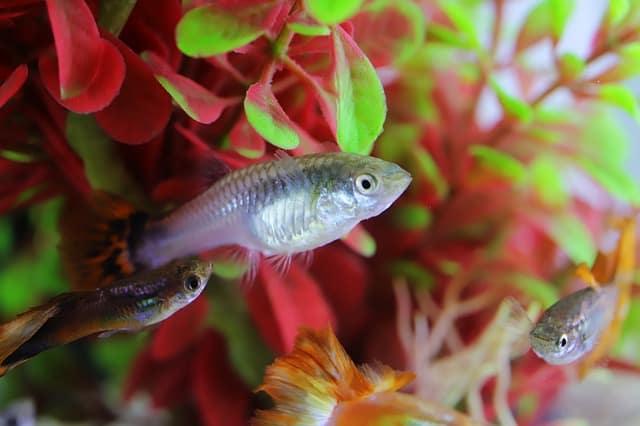
How Many Days Can Tropical Fish Go Without Food?
If you’re having a snail and/or algae problem, you might want to feed your fish less than every other day, but how long can you go without feeding your tropical fish? In extreme conditions, your tropical fish could probably go 5 to 7 days without any issues. I wouldn’t go any longer than that, though.
I would recommend never going longer than 3 days if you can, as after that length of time, I think you’re endangering your fish’s lives. If your fish are always hungry, some of your fish might end up dying from being stress or sickness.
Is it Better to Overfeed or Underfeed Your Fish?
It’s a bit of a balancing act when it comes to feeding your fish just enough (but not too much) food. Pretty much every time I feed my fish I’m thinking about this exact question. What you must consider is how overfeeding vs underfeeding will affect your aquarium’s water parameters and the fish.
Overfeeding will cause problems by raising ammonia, nitrite, and nitrate levels and we know you want to avoid that from happening! Overfeeding means more fish poop and thus more cleaning/water changes for you.
Underfeeding will only cause your fish to be a bit more active because they’ll be more responsive when seeing anyone near the tank. Unless you’re going days at a time without feeding, your fish will be fine. More frequent smaller feedings are a good way to keep fish fed and water parameters in check.
So, to answer the question, I’d say (without a doubt) it’s better to underfeed than overfeed.
Will Fish Stop Eating When They’re Full?
This is something that’s really important to note. Fish are hard wired to eat to survive and when out in the wild, they don’t get to eat on a regular basis like they do in a fish tank. This means that if you’re constantly overfeed them, they’ll constantly overeat! Bottom line: it’s not healthy for your fish.
Most fish will overeat if they’re overfed. Some fish will stop eating after a while and some will just keep picking away at the food, even if they’re no longer hungry.
Conclusion
In conclusion, I just want to point out a couple of things:
- When feeding your fish less often, it’s important to offer your fish a variety of foods, especially if the fish are omnivores.
- You want to make sure you provide a diverse and nutrient-rich diet, so your fish have a healthy and long life. Supplying food from both the plant and meat groups is important for omnivores.
- Overfeeding will produce more fish poop and waste, which means you’ll have more work to do when it comes to maintaining the tank.
- There’s a fine line when it comes to feeding fish, but once you establish the best balance between how much food to give and how much cleaning to do, you’ll ensure the health and safety of both the fish and the tank itself.
Good luck!
Related Posts
What Can You Feed Your Fish If You Have No Fish Food
How Much Should You Feed a Betta Fish?



